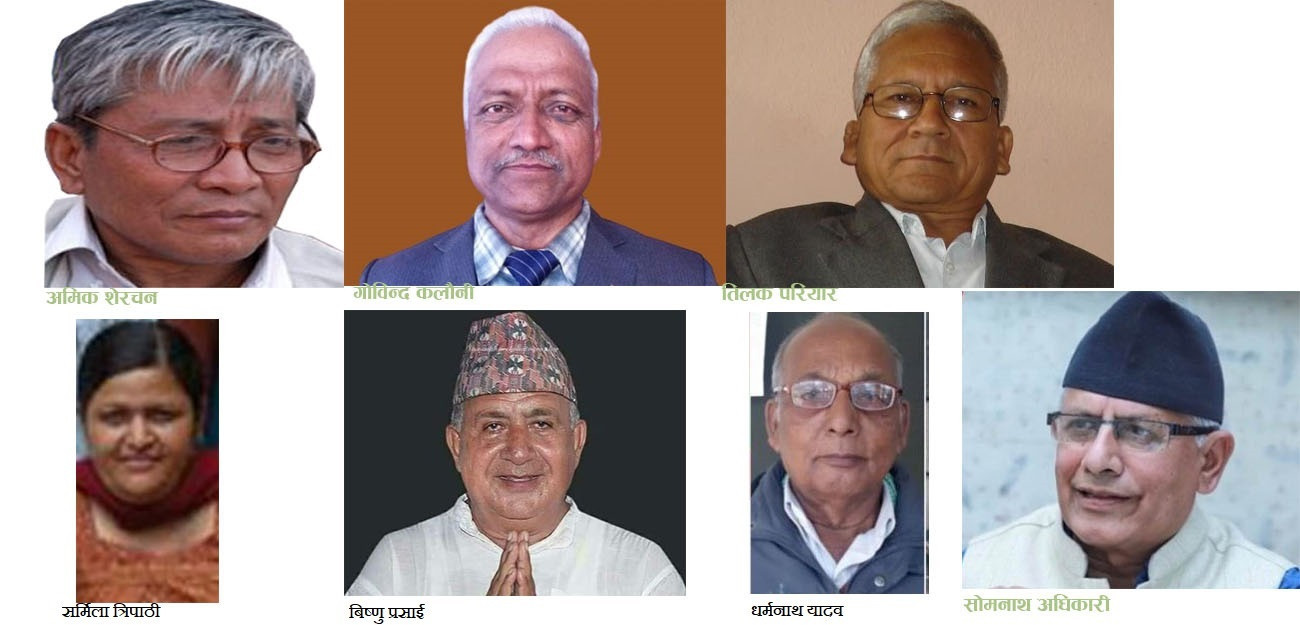The secretariat meeting of ruling CPN has picked seven provincial chiefs on Monday.
Chairmen KP Sharma Oli and Pushpa Kamal Dahal have shared the seven provincial chiefs, four and three respectively, while senior leader Madhav Kumar Nepal has not got any.
Som Nath Adhikari Pyasi of Kaski, Govinda Kalauni of Dadeldhura, Bishnu Prasai of Jhapa and Dharma Nath Yadav of Siraha are from the erstwhile CPN-UML while Amik Sherchan of Chitwan, Tilak Pariyar of Banke and Sharmila Tripathi of Kathmandu are former Maoists.
Pyasi from Prithvi Narayan, Kaski was elected to the Ratriya Panchayat in 1986 as a candidate for people, the term used by the then communists during the party-less system. He was a lawmaker after the first general election post 1990 and is currently an invited standing committee member of CPN.
He was in the list of candidates for proportional representation (PR) system from UML in the last general election. He is close to Oli and President Bidhya Devi Bhandari.
Sherchan is former chairman of Rastriya Janamorcha that had unified with the Maoists after the latter joined mainstream politics shunning violence. He has served as deputy prime minister from Maoist quota in the past.
Kalauni, considered close to Oli, had joined politics quitting the post of school principal. He had lost the 1992 parliamentary election in Dadeldhura to Sher Bahadur Deuba of Nepali Congress (NC). He is one of the UML leaders who have never won parliamentary election despite repeatedly getting tickets.
Pariyar is a dalit leader close to Dahal. He was elected to the first Constituent Assembly (CA) from Banke-1 on a Maoist ticket.
Prasai has served as vice-president of Jhapa District Development Committee in the past. He had lost the election for mayor of Mechinagar municipality in the last local election. He is close to Oli since Jhapa movement.
Yadav is a former central member of UML and is considered close to Oli.
Tripathi has been picked on Maoist quota. She is wife of Gyanendra Tripathi who was disappeared by security persons during the conflict period.

